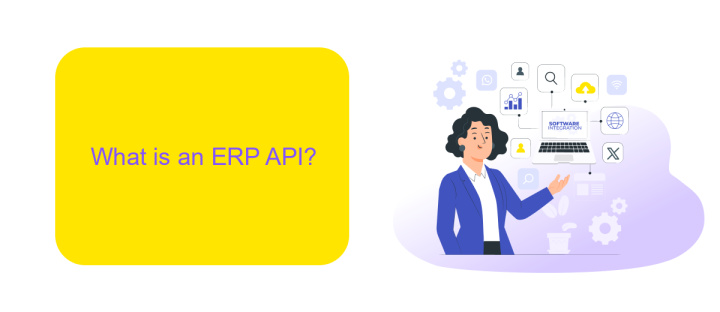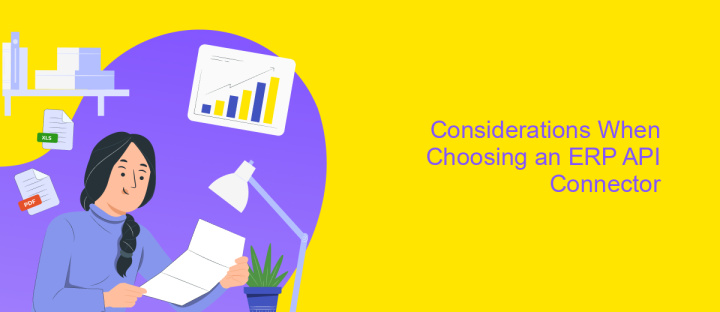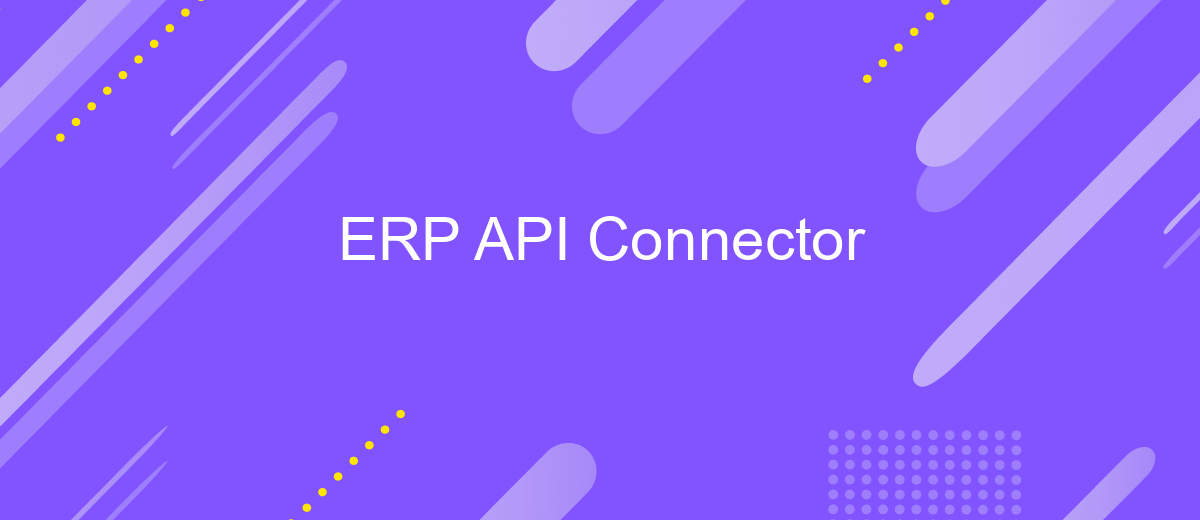ERP API Connector
In today's fast-paced business environment, integrating various software solutions is crucial for operational efficiency. An ERP API Connector serves as a vital tool in this integration process, enabling seamless communication between Enterprise Resource Planning (ERP) systems and other applications. By automating data exchange, it enhances productivity, reduces errors, and provides real-time insights, helping businesses to make informed decisions and stay competitive in the market.
Introduction
Enterprise Resource Planning (ERP) systems have become an essential part of modern business operations, streamlining processes and integrating various functions across an organization. However, as businesses grow and diversify, the need for seamless connectivity between ERP systems and other applications becomes critical. This is where an ERP API Connector comes into play. It serves as a bridge, enabling smooth data exchange and communication between ERP systems and external applications, thus enhancing operational efficiency and decision-making.
- Facilitates real-time data synchronization between ERP and other platforms.
- Enhances flexibility and scalability for growing businesses.
- Reduces manual data entry and associated errors.
- Improves overall system integration and interoperability.
- Supports custom workflows and business processes.
Implementing an ERP API Connector can significantly transform the way businesses operate, providing them with the agility to adapt to changing market demands. By ensuring that all systems communicate effectively, companies can optimize their resources, improve customer satisfaction, and drive innovation. As the digital landscape continues to evolve, leveraging such technology becomes not just advantageous but essential for sustained business success.
What is an ERP API?

An ERP API, or Enterprise Resource Planning Application Programming Interface, is a set of protocols and tools that allow different software applications to communicate with an ERP system. These APIs enable seamless integration between an ERP system and other business applications, such as CRM, e-commerce platforms, or supply chain management tools. By leveraging ERP APIs, businesses can automate data exchange, streamline operations, and enhance data accuracy across various departments, ultimately improving efficiency and decision-making processes.
The implementation of ERP APIs can vary depending on the specific needs of a business. For instance, services like ApiX-Drive offer solutions to simplify the integration process. ApiX-Drive provides a user-friendly platform that allows companies to connect their ERP systems with various applications without the need for extensive coding or technical expertise. This service can significantly reduce the time and resources required for integration, allowing businesses to focus on their core operations while ensuring that their systems are well-connected and data flows smoothly across all platforms.
Benefits of an ERP API Connector

An ERP API Connector serves as a vital tool for businesses aiming to streamline their operations and integrate various software systems. By facilitating seamless communication between different applications, it enhances data consistency and reduces manual errors. This integration capability is crucial for businesses looking to optimize their workflows and improve overall efficiency.
- Improved Efficiency: By automating data exchange between ERP systems and other applications, businesses can significantly reduce the time spent on manual data entry.
- Enhanced Data Accuracy: Automated data synchronization minimizes the risk of human errors, ensuring that information is consistent across all platforms.
- Scalability: As businesses grow, an ERP API Connector allows for easy integration of new applications, supporting expansion without disrupting existing processes.
- Cost Savings: Reducing manual tasks and improving process efficiency can lead to significant cost reductions over time.
- Real-time Insights: Instant data updates provide businesses with real-time insights, aiding in quicker and more informed decision-making.
Incorporating an ERP API Connector into a business's IT infrastructure not only simplifies complex processes but also provides a competitive edge in today's fast-paced market. By ensuring that all systems work harmoniously, companies can focus on strategic growth and innovation, rather than being bogged down by operational inefficiencies.
Considerations When Choosing an ERP API Connector

When selecting an ERP API connector, it's crucial to evaluate several factors to ensure seamless integration and optimal performance. The right connector can significantly enhance your business operations by enabling smooth data flow between different systems.
Firstly, consider the compatibility of the connector with your existing ERP system. Not all connectors work with every ERP platform, so it's essential to verify that the connector supports your specific software version. Additionally, evaluate the ease of use and setup process, as a complex integration can lead to increased implementation time and costs.
- Scalability: Ensure the connector can handle your business's growth and increased data volume.
- Security: Look for features like data encryption and compliance with industry standards.
- Support and Maintenance: Check if the provider offers reliable customer support and regular updates.
- Customization: Determine if the connector allows for customization to meet your unique business needs.
Finally, consider the cost-effectiveness of the solution. While some connectors may have a higher upfront cost, they might offer better long-term value through reduced maintenance and improved efficiency. Taking the time to assess these considerations will help you choose a connector that aligns with your business objectives.


Conclusion
In conclusion, the integration of an ERP API Connector is a transformative step for businesses seeking to streamline their operations and enhance data management. By facilitating seamless communication between disparate systems, an ERP API Connector eliminates data silos and improves the accuracy and efficiency of business processes. This integration not only supports real-time data exchange but also empowers organizations to make informed decisions, ultimately driving growth and innovation.
Services like ApiX-Drive play a crucial role in simplifying the integration process, offering user-friendly tools that allow businesses to connect their ERP systems with other applications effortlessly. By leveraging ApiX-Drive, companies can automate workflows, reduce manual intervention, and ensure consistent data flow across platforms. As businesses continue to evolve in the digital age, adopting such advanced integration solutions is essential for maintaining a competitive edge and achieving long-term success.
FAQ
What is an ERP API Connector?
How does an ERP API Connector work?
What are the benefits of using an ERP API Connector?
Can I use an ERP API Connector without technical expertise?
What should I consider when choosing an ERP API Connector?
Strive to take your business to the next level, achieve your goals faster and more efficiently? Apix-Drive is your reliable assistant for these tasks. An online service and application connector will help you automate key business processes and get rid of the routine. You and your employees will free up time for important core tasks. Try Apix-Drive features for free to see the effectiveness of the online connector for yourself.

